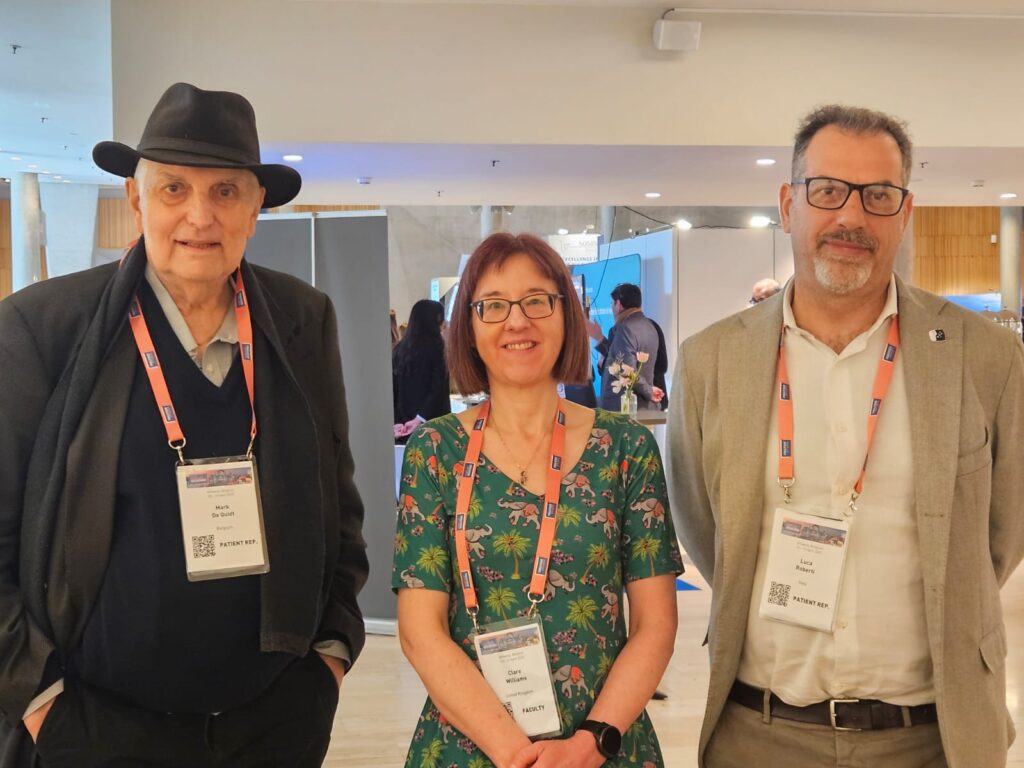
ELF recently attended the European Respiratory Society’s Sleep and Breathing Conference in Antwerp, Belgium. This was an opportunity to learn from the experts about the latest developments in the diagnosis and treatment of sleep-related breathing disorders, and for patients to highlight their real-life impact.
The European Respiratory Society (ERS) Sleep and Breathing Conference took place from 10–12 April in Antwerp. Co-organised by the ERS and the European Sleep Research Society, the 8th edition of the event brought together specialists in sleep-related breathing disorders and patients from across Europe to discuss the latest research and treatment for the conditions.
Luca Roberti and Mark De Quidt from the ELF Sleep Patient Advisory Group (PAG) joined Clare Williams, Patient Involvement and Engagement Coordinator, to share the patient’s perspective at the event. They shared examples of recent activities involving patients and how the outcomes from these can be used to shape future care for the conditions.
“The Sleep and Breathing Conference brought patients together with leading experts from across Europe and beyond. Sleep and breathing disorders are a very complex issue and multiple professionals are often required to treat these conditions. It was great that we were able to have an active role in sharing our knowledge with professionals at the event.”
– Luca Roberti, ELF Sleep PAG and President of the Italian Sleep Apnoea Association
At the event, Clare presented the findings from a recent ELF survey, exploring the challenges patients face when living with a sleep and breathing condition and the common issues with therapies. She highlighted how:
Luca also shared the findings from the SonnoAmico study conducted in Italy. Designed by the Italian Sleep Apnoea Association, it highlighted under-diagnosis as an issue with many sleep and breathing disorders. The study found:
By sharing these findings with experts at the conference, the ELF Sleep PAG hopes that more will be done to educate people working in the field of the issues in diagnosis and treatment of these conditions so that more patients receive the care they need.
“It was an honour to attend the ERS Sleep and Breathing Conference. As patients, our views sometimes differ from those of healthcare professionals. By being there, we remind the people attending that patient views and experiences are key to successful treatment.”
– Mark De Quidt, ApneuVereniging Vlaanderen
The ELF Sleep PAG attended several symposia at the event, covering a range of topics. They were especially interested to learn:
“I hope that our insights from the conference can be used to shape future research and personalise treatments for people with sleep-related breathing disorders worldwide.” – Luca Roberti
Are you living with a sleep and breathing disorder and interested in advocating for better care for these conditions? Join the ELF Sleep Patient Advisory Group (PAG) today and help us work towards improved outcomes for these conditions.
Learn more